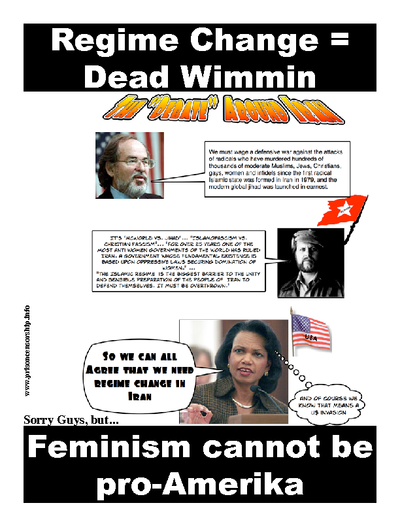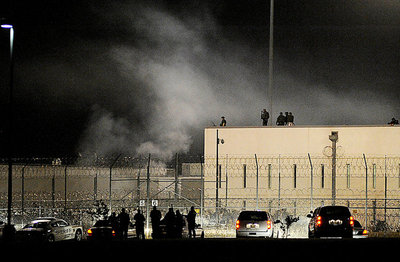
Movie Review: Snow White and the Huntsman

Snow White and the Huntsman is a more in-depth, live-action
take on the Disney classic. A variety of themes are explored in this
film that were glossed over or undeveloped in the animated version, but
the basic plot remains the same.
The story begins with Snow White as a small girl. Her mother falls ill and dies. Shortly thereafter the widower king is drawn into battle with a “dark and mysterious” army, whose warriors are made of obsidian or glass. The army is defeated and a prisoner, a beautiful womyn, is rescued. The king marries the prisoner the very next day, and she quickly is revealed to be an evil witch. The new queen kills the king, locks Snow White in a tower, and destroys the entire kingdom. How Snow White survived her decade of solitary confinement was not addressed in the film, but would have been interesting for us to analyze and likely criticize.
The queen was under a spell that kept her the fairest in the land, so long as she sucks the youth and beauty out of young wimmin to constantly replenish her powers. This beauty enables her to manipulate people who are distracted by her good looks, and to cast spells of her own. The spell can only be broken by “fairest blood,” and as Snow White comes of age in her prison tower, she becomes a threat to the queen’s powers. The magic mirror on the wall instructs the queen to eat Snow White’s heart so that she will become immortal.
The queen’s brother goes to retrieve Snow White for a meeting with the queen. Of course Snow White escapes, and through a course of events leads a revolution to take back the kingdom from the evil queen. It is Snow White’s “purity” and “innocence” (as well as a blessing from a forest creature straight out of Princess Mononoke) that give her magical powers to overcome the queen’s spells and tricks. A classic Jesus story, complete with a resurrection.
When the evil queen first took power, the subjects initially tried to resist her rule. They were defeated each time, and eventually everyone gave up, broke into sects, turned alcoholic, and warred with each other just trying to stay alive. An oracle dwarf identified Snow White as having a “destiny.” It was only the power of this destined leader that could bring everyone together and overcome the evil queen.
The take-home lessons from Snow White and the Huntsman are defeatist. “Find a good leader and follow them.” “People’s struggle isn’t winnable.” “There’s nothing you can do to challenge the all-powerful status quo.” These are typical messages to be expected from a mainstream Amerikkkan movie.
The only theme that was remotely interesting was the queen’s views on gender and beauty. She has been a victim of beauty for twenty lifetimes and has built up a lot of resentment toward men. This resentment comes up in her murder of the king, because she is distrustful of men, who will just throw her out when she ages. In a later scene, she is assessing two male prisoners who have just been captured, and one is young and handsome. Before killing him with her own fingers, she gives a monologue about how he would have been her ruin, but instead she will be his ruin. This is a good critique of the fetishization of youth and beauty and its contribution to a variety of mental health challenges people in our society must face. Had the queen not been valued by men only for her beauty, she may have been a more benevolent dictator, at least to the handsome young men who cross her path.
Snow White and the Huntsman doesn’t get my recommendation. We don’t need any more encouragement in our society to drink our sorrows about the status quo away, waiting for our own Snow White. And it’s unnecessary to wait, because your Snow White is you!





 Alabama
Alabama
 Alaska
Alaska
 Arizona
Arizona
 Arkansas
Arkansas
 Army Post
Army Post
 California
California
 Colorado
Colorado
 Connecticut
Connecticut
 Delaware
Delaware
 District of Columbia
District of Columbia
 Federal
Federal
 Florida
Florida
 Georgia
Georgia
 Guam
Guam
 Hawaii
Hawaii
 Idaho
Idaho
 Illinois
Illinois
 Indiana
Indiana
 Iowa
Iowa
 Kansas
Kansas
 Kentucky
Kentucky
 Louisiana
Louisiana
 Maine
Maine
 Maryland
Maryland
 Massachusetts
Massachusetts
 Michigan
Michigan
 Minnesota
Minnesota
 Mississippi
Mississippi
 Missouri
Missouri
 Montana
Montana
 Nebraska
Nebraska
 Nevada
Nevada
 New Hampshire
New Hampshire
 New Jersey
New Jersey
 New Mexico
New Mexico
 New York
New York
 North Carolina
North Carolina
 North Dakota
North Dakota
 Ohio
Ohio
 Oklahoma
Oklahoma
 Oregon
Oregon
 Pennsylvania
Pennsylvania
 Puerto Rico
Puerto Rico
 Rhode Island
Rhode Island
 South Carolina
South Carolina
 South Dakota
South Dakota
 Tennessee
Tennessee
 Texas
Texas
 Utah
Utah
 Vermont
Vermont
 Virginia
Virginia
 Washington
Washington
 West Virginia
West Virginia
 Wisconsin
Wisconsin
 Wyoming
Wyoming


